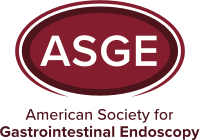Saint Louis University Hospital_SSM Health
Saint Louis University
1008 Spring Av
2nd floor, GI
St. Louis, Missouri 63110
314-617-3173 (V)
Website
1 Position Available
Program Type: Both ERCP & EUS
Authorized Administrative Official: Angela Battles (email)
Program Director: Wissam Kiwan
Duration: 1 Year
Inclusive Dates of the Program: 7/1/2026 to 6/30/2027
Program Website: www.slu.edu/medicine/internal-medicine/gastroenterology-hepatology/fellowship/index.php
Accepts applicants from outside of North America? No
Accepts applicants with J1 visas? No
Accepts applicants with H1B visas? No
Accepts applicants with E3 visas? No
Supervised ProceduresProcedure |
Faculty Involved in AEF Training | Total Annual Volume | Annual Volume with hands-on AEF Involvement |
|---|---|---|---|
| ERCP | 4 | 450 | 400 |
| Diagnostic EUS | 4 | 480 | 425 |
| Interventional EUS | 4 | 25 | 20 |
| Deep enteroscopy | 1 | 17 | 10 |
| Luminal stenting | 4 | 20 | 20 |
| ESD | 3 | 10 | 0 |
| Bariatric endoscopy | 2 | 0 | 0 |
| POEM | 3 | 5 | 0 |
| Endoscopic management of GERD and Barrett’s | 4 | 40 | 30 |
Unsupervised Trainee ActivitiesProcedure |
Value |
|---|---|
| General GI procedures (per year) | 500 |
| Inpatient general GI service (weeks/year) | 0 |
| Inpatient advanced endoscopy service (weeks/year) | 0 |
| Ambulatory clinics (per year) | 12 |
| Committed time for research (days/month) | 2 (optional) |
Requirements for Application
- Standard ASGE Application Packet
- ASGE Application
- Post-Undergraduate Education
- USMLE Scores
- Certification of Completion of Residency
- Prior to appointment in the advanced endoscopy fellowship, fellows should have completed a three-year ACGME-accredited gastroenterology fellowship
- Fellows from non-ACGME-accredited programs must have completed at least three years of gastroenterology education prior to starting the fellowship
- Personal Statement
- Curriculum Vitae
- 3 Letters of Reference
Additional Information about Program
Program Overview:
The Advanced Endoscopy Fellowship Program at Saint Louis University Hospital provides comprehensive training for future leaders in interventional endoscopy. This 12-month program equips fellows with the technical and cognitive competencies required to perform a wide range of advanced endoscopic procedures. In our patient-centered practice, trainees are deeply involved in clinical assessment and the development of individualized treatment plans tailored to each patient's specific needs.
Core Training Focus:
Fellows will develop proficiency in performing endoscopic retrograde cholangiopancreatography (ERCP) and diagnostic and therapeutic endoscopic ultrasonography (EUS), focusing on managing various pancreaticobiliary conditions. The program emphasizes skill development in handling a broad range of case complexities, from simple choledocholithiasis to advanced procedures such as complex stone management and transmural drainage of the biliary tree.
Since 2016, SLUCare Center for Pancreatic and Biliary Diseases has been recognized by the National Pancreas Foundation (NPF) as a center of excellence for the care of patients with pancreatitis and pancreatic cancer. This prestigious designation underscores our expertise and offers trainees valuable experience in managing complex pancreatic conditions.
In addition to ERCP and EUS, the fellowship highlights advanced therapeutic procedures, including endoscopic mucosal resection (EMR), ablative therapies, and the management of GI tract leaks, perforations, and strictures. Trainees will also gain exposure to innovative techniques such as third-space and bariatric endoscopy.
State-of-the-Art Endoscopy Unit:
At our newly renovated endoscopy unit, we utilize cutting-edge technology and tools to perform various advanced endoscopic procedures:
- Endoscopic retrograde cholangiopancreatography (ERCP): including altered anatomy ERCP, cholangioscopy, mechanical and electrohydraulic lithotripsy (EHL), and endobiliary radiofrequency ablation
- Diagnostic and therapeutic endoscopic ultrasonography (EUS): including fine needle sampling, EUS-guided biliary drainage and access, and pancreatic fluid collection management (cyst-gastrostomy and necrosectomy
- Endoscopic mucosal resection (EMR) and endoscopic submucosal dissection (ESD) of colorectal, duodenal, gastric, and esophageal lesions
- Ablation therapies: such as radiofrequency and cryoablation for Barrett’s esophagus and GAVE
- Enteral stent placement: for benign and malignant esophageal strictures, gastric outlet obstruction, and colon stenting
- Endoscopic suturing
- POEM, Z-POEM, and G-POEM
- Single and double balloon enteroscopy
Clinical Experience and Case Volume:
Fellows will receive extensive hands-on training in both diagnostic and therapeutic interventions, including altered anatomy cases, advanced stenting, and endoscopic therapies for neoplastic conditions. Under the supervision of experienced faculty at SLU Hospital, fellows will progressively gain autonomy as they develop their skills. Throughout the fellowship, trainees are expected to perform more than 400 ERCP and 400 EUS procedures.
The program prepares fellows for multidisciplinary practices, offering opportunities to closely collaborate with specialists in surgical oncology, pancreaticobiliary and transplant surgery, and interventional radiology.
Educational and Teaching Opportunities:
Fellows’ primary focus is on advanced endoscopic procedures, which allows ample time for educational development and teaching. Fellows will actively contribute to the education of medical students, residents, and junior GI fellows by participating in advanced endoscopy lectures, tumor boards, and mentoring activities.
Faculty and Mentorship:
Our dedicated faculty consists of highly experienced interventional endoscopists who provide close mentorship throughout the program. Led by Dr. Wissam Kiwan, along with a team of specialized faculty, the program ensures that fellows are comprehensively trained and well-prepared for careers in both academic and tertiary referral settings, as well as busy community practices.
Please Note: All data in this program description is entered on a voluntary basis
